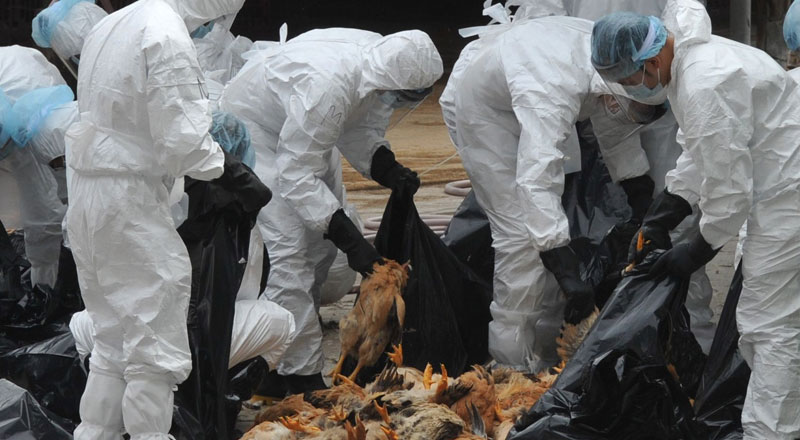- A new type of bird flu is spreading among wild birds and other animals like minks, badgers, pigs, and bears.
- China has registered its first human death due to H3N8 bird flu, the World Health Organisation said.
- The H5N1 strain of bird flu is very deadly, with a mortality rate of 50%, which means that out of 100 people who get infected, 50 may die.
- Public health authorities are very concerned about this new H5N1 virus, as it could cause a lot of harm if it were to spread efficiently among humans.
- As of now, there is no risk of bird flu in India but the experts suggest the best way for people to stay safe from the virus is to avoid handling birds, especially if they don’t work with them.
A new type of bird flu called H5N1 is spreading among wild birds and other animals like minks, badgers, pigs, and bears. People are wondering if it will also start affecting humans. China has registered its first human death due to H3N8 bird flu, the World Health Organisation said. According to WHO, a 56-year-old from Guangdong province in southeast China has died from the avian influenza strain.
There is currently an outbreak of a disease called avian influenza in Europe, which affects birds. This outbreak is being called the worst ever seen in Europe. Avian influenza has different types, and one of them is known as H5N1. This type was first seen in 1997 and has infected around 850 people since then. Although this is a small number, about half of the people who got infected with H5N1 have died.
The H5N1 strain of bird flu is very deadly, with a mortality rate of 50%, which means that out of 100 people who get infected, 50 may die. This is a higher mortality rate compared to other recent flu pandemics, including the 2009 H1N1 swine flu pandemic, which had a mortality rate of less than 1%.
Public health authorities are very concerned about this new H5N1 virus, as it could cause a lot of harm if it were to spread efficiently among humans. Researchers say that if this new lineage of H5N1 were to mutate and find a way to easily spread from person to person, it could result in a catastrophic global outbreak. They say it is important to monitor the virus and take necessary measures to prevent its spread.
According to experts, there is very little chance of the new H5N1 avian flu virus spreading easily among humans. All the people who have tested positive for this virus have been in close contact with sick wild birds. This means people who don’t have close contact with sick birds are less likely to get sick.
Notably, the virus was first traced in North American waterfowl in 2002. It is known to infect horses, dogs and seals. As per a report by The Guardian, it had not been detected in humans before two non-fatal cases emerged, both in China, in April and May last year.
WHO to investigate the origin of the virus. As the woman had multiple health issues, the UN health agency said it is still investigating what led to her death. The woman might be infected with the virus as she was living near a poultry market.
As of now, there is no risk of bird flu in India but the experts suggest the best way for people to stay safe from the virus is to avoid handling birds, especially if they don’t work with them. The risk of catching the virus is still low, but it’s better to be cautious.
For people who work on poultry farms or have chickens or hens in their backyard. Experts recommend wearing personal protective equipment when handling the animals to prevent getting infected.
(With inputs from agency)





